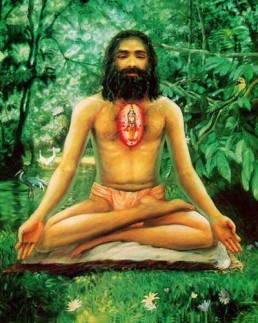Patanjali Yogasutra Introduction
Part 1 – Samādhi-pāda – Yoga and its Aims
1.1
1.2
1.3
1.4
1.5
1.6
1.7
1.8
1.9
1.10
1.11
1.12
1.13
1.14
1.15
1.16
1.17
1.18
1.19
1.20
1.21
1.22
1.23
1.24
1.25
1.26
1.27
1.28
1.29
1.30
1.31
1.32
1.33
1.34
1.35
1.36
1.37
1.38
1.39
1.40
1.41
1.42
1.43
1.44
1.45
1.46
1.47
1.48
1.49
1.50
1.51
Part 2 – Sādhana-pāda – Yoga and its Practice
2.1
2.2
2.3
2.4
2.5
2.6
2.7
2.8
2.9
2.10
2.11
2.12
2.13
2.14
2.15
2.16
2.17
2.18
2.19
2.20
2.21
2.22
2.23
2.24
2.25
2.26
2.27
2.28
2.29
2.30
2.31
2.32
2.33
2.34
2.35
2.36
2.37
2.38
2.39
2.40
2.41
2.42
2.43
2.44
2.45
2.46
2.47
2.48
2.49
2.50
2.51
2.52
2.53
2.54
2.55
Part 3 – Vibhūti-Pāda – Powers
3.1
3.2
3.3
3.4
3.5
3.6
3.7
3.8
3.9
3.10
3.11
3.12
3.13
3.14
3.15
3.16
3.17
3.18
3.19
3.20
3.21
3.22
3.23
3.24
3.25
3.26
3.27
3.28
3.29
3.30
3.31
3.32
3.33
3.34
3.35
3.36
3.37
3.38
3.39
3.40
3.41
3.42
3.43
3.44
3.45
3.46
3.47
3.48
3.49
3.50
3.51
3.52
3.53
3.54
3.55
3.56
Part 4 – Kaivalya-pāda – Liberation
4.1
4.2
4.3
4.4
4.5
4.6
4.7
4.8
4.9
4.10
4.11
4.12
4.13
4.14
4.15
4.16
4.17
4.18
4.19
4.20
4.21
4.22
4.23
4.24
4.25
4.26
4.27
4.28
4.29
4.30
4.31
4.32
4.33
4.34

Commentary on Sri Patanjali Yogasutra by Swami Vivekananda
According to yoga philosophy, it is through ignorance that the soul has been joined with nature. The aim is to get rid of nature’s control over us. That is the goal of all religions. Each soul is potentially divine. The goal is to manifest this Divinity within, by controlling nature, external and internal. Do this either by work, or worship, or psychic control, or philosophy — by one or more or all of these — and be free. This is the whole of religion. Doctrines, or dogmas, or rituals, or books, or temples, or forms, are but secondary details. The Yogi tries to reach this goal through psychic control. Until we can free ourselves from nature, we are slaves; as she dictates so we must go. The Yogi claims that he who controls mind controls matter also. The internal nature is much higher than the external and much more difficult to grapple with, much more difficult to control. Therefore he who has conquered the internal nature controls the whole universe; it becomes his servant. Raja-yoga propounds the methods of gaining this control. Forces higher than we know in physical nature will have to be subdued. This body is just the external crust of the mind. They are not two different things; they are just as the oyster and its shell. They are but two aspects of one thing; the internal substance of the oyster takes up matter from outside, and manufactures the shell. In the same way the internal fine forces which are called mind take up gross matter from outside, and from that manufacture this external shell, the body. If, then, we have control of the internal, it is very easy to have control of the external. Then again, these forces are not different. It is not that some forces are physical, and some mental; the physical forces are but the gross manifestations of the fine forces, just as the physical world is but the gross manifestation of the fine world.
Yogasutra – Verse 2.25 – Yogasutra-2.25-tadabhāvāt – In Sanskrit with English Transliteration, Translation, Meaning and Commentary by Swami Vivekananda – Yogasutra-2-25
